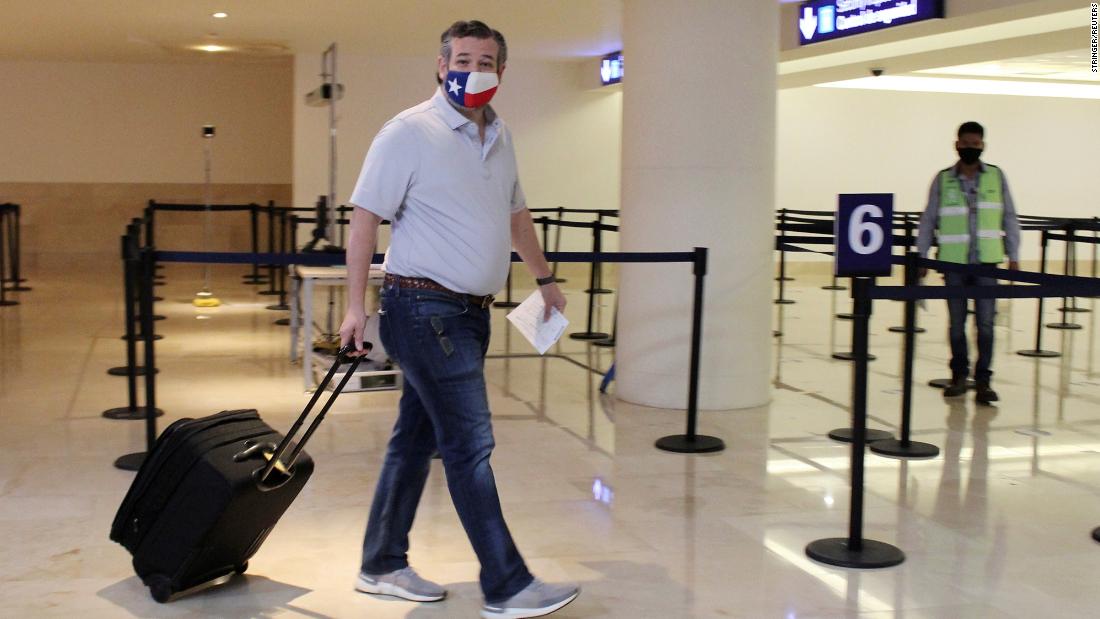
It's obviously too early to know what if any political fallout will be suffered by Cruz or Texas Gov. Greg Abbott.
What history does tell us is that how a politician responds to a natural disaster can have a major impact on his or her political standing.
Hurricane Katrina's aftermath inflicted tremendous pain on Louisiana. Some politicians, such as Ray Nagin, then New Orleans' mayor, were able to get reelected, after the storm. Kathleen Blanco, who was Louisiana's governor at the time, was not so fortunate.
Blanco had received consistently high marks as governor prior to the 2005 storm. After Katrina, a plurality of voters consistently disapproved of her performance. Her ratings never recovered, and she decided not to seek a second term in 2007.
Winter storms can also do a politician in, too. Mike Bloomberg was in the middle of his third term as New York City's mayor when a 2010 snowstorm hit the area on Boxing Day. The blizzard, which changed directions at the last minute, caught the city off guard and some streets remained unplowed for days.
Bloomberg went from a 55% to 39% approval rating.
Worse for Bloomberg, he was reportedly in Bermuda as the storm got under way. That may remind some of Cruz leaving for Cancun this week. There are few things voters dislike more than politicians who aren't around when disaster strikes.
I should note that Bloomberg was able to eventually recover some popularity, unlike Blanco. If any Texas politicians see a deterioration in their ratings, it is quite possible that it is fleeting. Abbott's term isn't up until 2022 and Cruz's isn't up until 2024.
Of course, politicians aren't always so lucky to not have to face the voters immediately following a botched handling of a weather disaster. There have been many stories written about how Michael Bilandic, mayor of Chicago, lost reelection in 1979 following the city's response to a blizzard.
Sometimes, though, weather can save a political career. Republican Thomas Reynolds was trying to hold on to his seat in the House in 2006, which ended up being a big year for Democrats. Reynolds was falling in the polls, after questions arose about what Reynolds knew about emails exchanged between Mark Foley and a young congressional page.
Then a freak October snowstorm hit Reynolds' congressional district in Western New York. Reynolds was seen all over the media, and voters seemed to reward him for his response. His poll numbers recovered, and he won reelection by 4 points.
Of course, we shouldn't ignore the possibility that public opinion won't change at all. Donald Trump was praised by the public for his response to Hurricane Harvey and Hurricane Irma that did most of its damage to the United States on the mainland during the summer of 2017.
Trump's handling of Hurricane Maria, which hit Puerto Rico, was seen in a much more unfavorable light, however.
Voters' overall opinion of Trump barely budged, though. His approval rating stayed just south of 40%.
There's a decent chance any drop in the polls Republican officials like Abbott and Cruz have in Texas will be minimal. It is, after all, a Republican state, and no Democrat has won a statewide race in Texas since 1994.
In a 24-hour news environment during a pandemic, voters may simply move on.
"can" - Google News
February 21, 2021 at 02:04AM
https://ift.tt/3dvHEUS
How a bad response to a weather disaster can ruin a political career - CNN
"can" - Google News
https://ift.tt/2NE2i6G
https://ift.tt/3d3vX4n
Bagikan Berita Ini














0 Response to "How a bad response to a weather disaster can ruin a political career - CNN"
Post a Comment